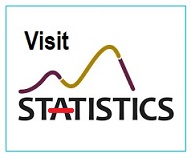Bee Pollen Effect on Blood Glucose Levels in Alloxan-induced Male Wistar Rats
Aprilia Nurcahyaning Rahayu, Bambang Wirjatmadi, Merryana Adriani, Soenarnatalina M., Dwi Winarni, Sri Hartiningsih
Abstract
Bee pollen, as an active ingredient in diabetes mellitus (DM) prevention and treatment, is able to reduce oxidative reactions and to regenerate cells. This study aimed to determine bee pollen effect on blood glucose levels of rats which induced by alloxan. This study used a completely randomized design with Pre-Post Test design and Control Group design. The subjects were 25 male wistar rats which divided randomly into 5 groups: (1) negative control group (non-DM rats); (2) positive control group (DM rats without bee pollen); (3) P1 group (DM rats with 0.25 g/day bee pollen); (4) P2 group (DM rats with 0.63 g/day bee pollen); and (5) P3 group (DM rats with 1.25 g/day bee pollen). Alloxan inducing was used to cause rats under DM or hyperglycemic conditions. The data were analyzed by Manova test and Tukey HSD test. Statistical analysis showed that bee pollen effectively had an effect on decreasing fasting blood glucose (FBG) levels in treatment groups with 0.002. Differences test showed a difference between positive control group and treatment groups, but there was no difference between all treatment groups. However, the bee pollen dosage which giving the lowest average of FBG was 0.25 g on P1 group.
Keywords: Bee pollen, Blood glucose level, Alloxan
DOI:
https://doi.org/10.33846/hn.v2i1.85
Refbacks
- There are currently no refbacks.
Copyright (c) 2018 Aprilia Nurcahyaning Rahayu, Bambang Wirjatmadi, Merryana Adriani, Soenarnatalina M., Dwi Winarni, Sri Hartiningsih
"HEALTH NOTIONS" ISSN: 2580-4936 (online version only), published by Humanistic Network for Science and Technology
Cemara street 25, 001/002, Dare, Ds./Kec. Sukorejo, Ponorogo, East Java, Indonesia, 63453
Phone/WhatsApp: +628133134413

